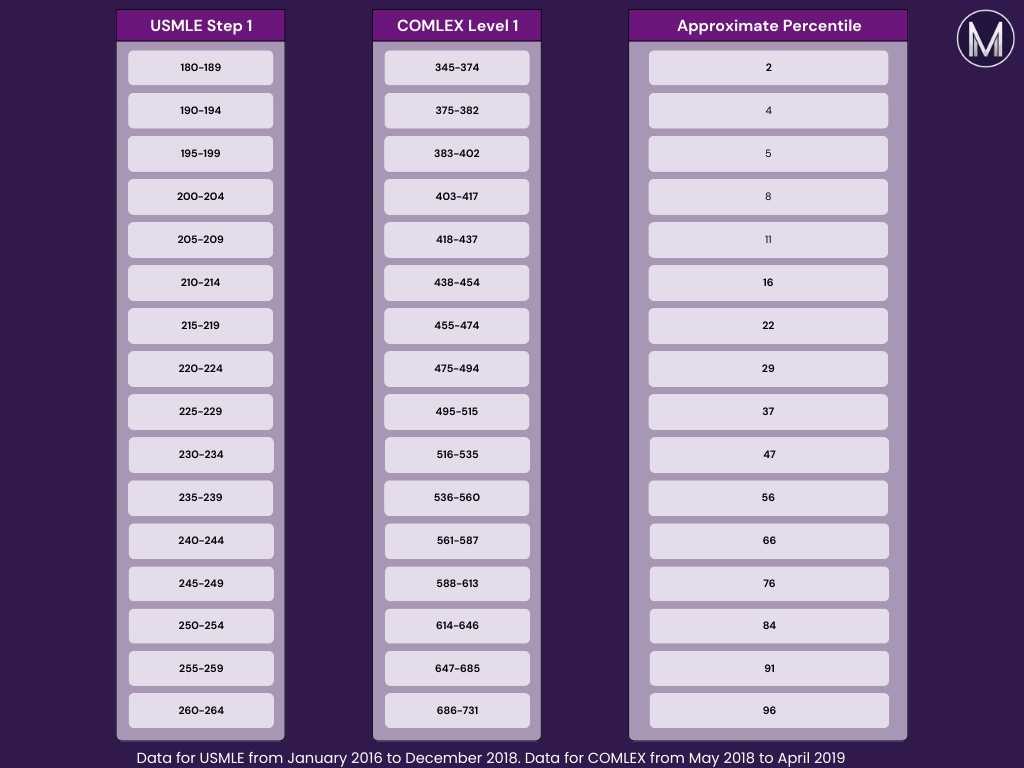
COMLEX vs USMLE: Which Medical Exam is Right for You?
Considering a medical career? The fork in the road often leads to one pressing question: COMLEX vs USMLE? The decision can be daunting, affecting your entire professional trajectory.
Let’s break down the key differences, pros, and cons to help you navigate this crucial crossroads. Your choice will shape your journey in medicine.
What is COMLEX?
COMLEX, or the Comprehensive Osteopathic Medical Licensing Examination, is a pivotal licensing exam for aspiring Doctors of Osteopathic Medicine (DOs) in the United States. Designed to assess medical knowledge and clinical skills, it comprises Level 1, Level 2-CE (Cognitive Evaluation), and Level 2-PE (Performance Evaluation).
Unlike traditional exams, COMLEX uniquely integrates Osteopathic Manipulative Medicine (OMM) into its questions, emphasizing the distinctive approach of DOs. The exam recently transitioned to a pass/fail scoring system, adding a new layer to its evaluation. COMLEX plays a crucial role in DO students’ journey, serving as a gateway to licensure and influencing their competitiveness in residency applications.
What is USMLE?
The United States Medical Licensing Examination (USMLE) is a pivotal assessment for aspiring Doctors of Medicine (MDs) in the United States. It comprises three steps: Step 1, Step 2 Clinical Knowledge (CK), and Step 2 Clinical Skills (CS), gauging medical knowledge, clinical skills, and patient interactions.
Notably, USMLE recently shifted to a pass/fail scoring system for Step 1, transforming the evaluation landscape. MD students undergo this rigorous examination series to obtain their medical license, a critical step in their journey towards medical practice. USMLE scores also play a significant role in shaping MD students’ competitiveness for coveted residency positions in their desired specialties.
Key Differences between COMLEX vs USMLE
Target Audience:
- COMLEX:
Doctors of Osteopathic Medicine (DOs).
Integrates Osteopathic Manipulative Medicine (OMM).
- USMLE:
Doctors of Medicine (MDs).
Follows a conventional medical examination format.
Scoring System:
- Both exams shifted to a pass/fail scoring system.
- Alignment in scoring methods doesn’t eliminate essential content and focus differences.
Exam Structure:
- COMLEX:
Longer total testing time (9 hours).
Different question blocks and break times.
- USMLE:
Shorter total testing time (8 hours).
More flexibility in break time allocation (60 minutes total).
Content Emphasis:
- COMLEX:
Focus on musculoskeletal (MSK) systems and primary care pathology.
Directly presented questions, demanding clear-cut responses.
- USMLE:
Stepwise approach in questions, requiring logical reasoning.
Even spread of questions across various medical disciplines.
Impact of Recent Integration:
- Integration of AOA and AACOM into ACGME expands COMLEX acceptance.
- Certain competitive specialties still favor USMLE scores.
Strategic Decision:
- While scoring system convergence signifies equivalency, nuances persist.
- Importance of a strategic approach in deciding between COMLEX and USMLE.
- DO students must evaluate career goals, specialties, and licensure landscape for informed decisions.
COMLEX to USMLE Conversion
All medical programs are now open to both MD and DO applicants, after the merge of the American Osteopathic Association (AOA) and the Accreditation Council for Graduate Medical Education (ACGME). However, there are more allopathic (MD) students than osteopathic (DO) students. This therefore means that USMLE scores are more commonly seen in students applying for residency.
There are also more original ACGME programs compared to AOA programs and admissions teams are therefore more familiar with USMLE vs COMLEX. As a result, they are probably more likely to accept an applicant with a USMLE and COMLEX score compared to a student with equal qualifications but just a COMLEX score.
No COMLEX to USMLE converter formula for score conversion has been widely acknowledged. While some can be found online, many programs advise against utilising these formulas to calculate a COMLEX Level 1 score from a USMLE Step 1 score. The table below provides an estimate as to where you might fall on Step 1 based on your Level 1 score.

Pros and Cons of Taking Both COMLEX and USMLE
As a medical student navigating the landscape of licensure exams, the decision to take both COMLEX and USMLE involves a careful evaluation of various factors. Here’s a breakdown of the pros and cons to aid in making an informed choice:
Pros:
Expanded Opportunities:
- Opens doors to a broader range of residency programs.
- Positions DO students competitively in both ACGME and AOA accredited programs.
Competitive Edge:
- Some competitive specialties traditionally favored USMLE scores.
- Dual exam completion provides a competitive edge for competitive residencies.
Uniform Application:
- Uniform application process for MD and DO students.
- ACGME’s single accreditation system streamlines application procedures.
Career Flexibility:
- Provides flexibility for career changes or uncertainties.
- Ensures readiness for evolving requirements in the medical field.
Residency Program Alignment:
- Aligns with residency programs that still prioritize USMLE scores.
- Enhances chances in programs with a historical preference for USMLE.
Cons:
Financial Considerations:
- Incurs additional costs for exam fees, study materials, and potential travel expenses.
- Financial burden may impact students, especially when considering limited budgets.
Time and Stress:
- Increases exam-related stress due to the comprehensive preparation needed for both exams.
- Balancing study schedules for both exams demands efficient time management.
Possibility of Score Disparities:
- Disparities in scores might lead to complexities in application strategy.
- Lower scores in one exam could raise questions during residency selection.
Overlapping Content:
- Overlaps in exam content may not provide significant additional insights.
- Might lead to potential burnout from the repetitive nature of the content.
Changing Landscape:
- Ongoing changes in residency accreditation and exam structures may impact the significance of dual exams.
- Regular updates in the medical education landscape might alter the value of dual certification.
So, the decision to take both COMLEX and USMLE involves weighing the advantages against the challenges. Ultimately, a strategic approach aligned with individual career goals will guide aspiring physicians in choosing the most suitable path for licensure.
Final Thoughts
Choosing between COMLEX vs USMLE shapes your medical journey. Consider your goals, adapt to changes, and weigh the pros and cons. Success isn’t just passing exams but aligning your path with aspirations. Make a thoughtful choice, stay focused, and let your journey to becoming a licensed physician unfold.
Ready for top-notch tutoring? Elevate your success with a COMLEX or USMLE tutor and take advantage of our USMLE practice questions.
FAQs
Why should I consider taking both COMLEX and USMLE?
Taking both exams broadens your residency program options. Although some specialties now accept COMLEX, competitive fields often prefer USMLE. Assess your career goals, program preferences, and weigh the benefits against the challenges before deciding.
Are there specific resources for OMM in COMLEX and USMLE preparation?
While USMLE primarily focuses on allopathic principles, incorporating COMLEX-oriented resources for OMM, like COMBANK or COMQUEST, can enhance your preparation. Ensure a comprehensive understanding of osteopathic concepts in addition to conventional study materials.
How do the recent ACGME and AOA program integration impact exam choices?
With most AOA programs now ACGME-accredited, MD and DO students can apply to both. However, some programs still favor USMLE. Stay informed about program preferences and industry trends to tailor your exam strategy accordingly.
Is it advisable to take COMLEX and USMLE close together or with a gap?
Deciding the timing depends on factors like your familiarity with OMM, study preferences, and stress management. Some students take them back-to-back, while others space them apart. Consider your strengths, weaknesses, and preferences when planning.
Are there differences in how USMLE vs COMLEX evaluate primary care knowledge?
Yes, while both exams cover fundamental medical principles, COMLEX often emphasizes primary care pathology. Understanding these distinctions helps tailor your preparation strategy for each exam and ensures a well-rounded approach to medical knowledge.







Was this article helpful?
Still got a question? Leave a comment